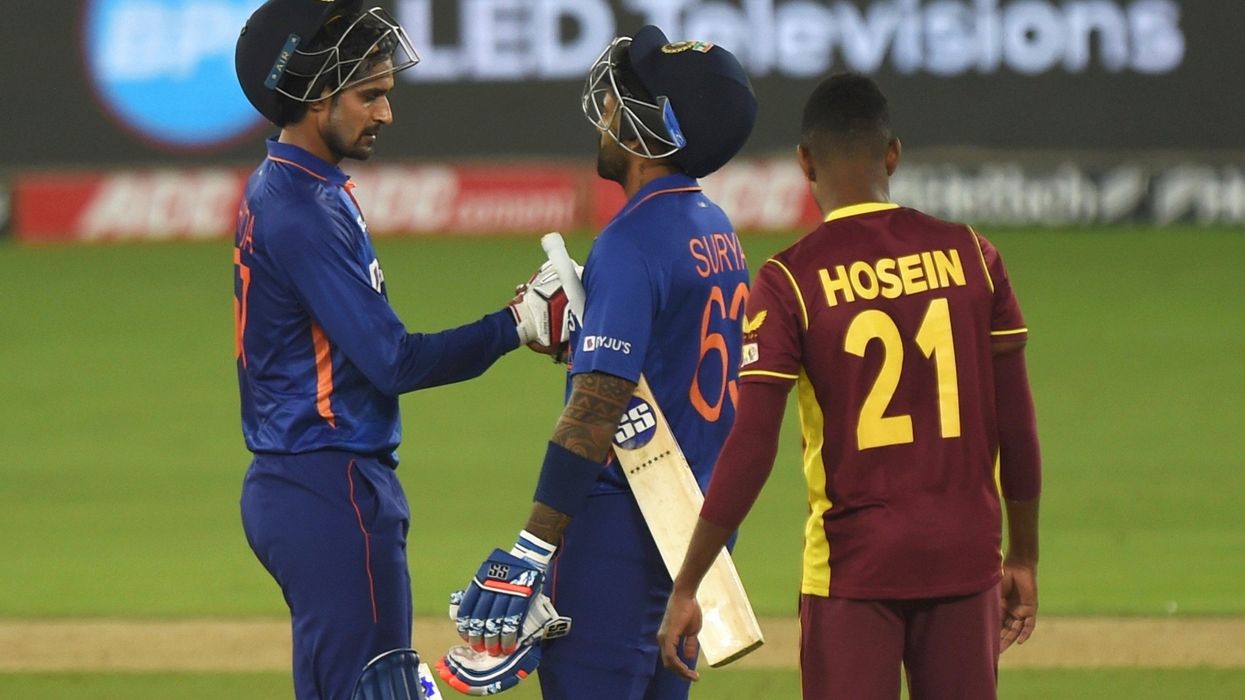SPINNERS Yuzvendra Chahal and Washington Sundar set up India's comfortable six-wicket victory over the West Indies for the hosts' landmark 1,000th one-day international on Sunday (6).
Rohit Sharma took to the field as India's new full-time ODI captain and his decision to bowl was vindicated by the two spinners as the hosts bowled out the West Indies for 176 in Ahmedabad.
The skipper's top-scoring 60 then helped India romp home in just 28 overs on the day they became the first team to pass the 1,000 ODI milestone.
The West Indies had slipped to 79 for 7 before Jason Holder hit 57 to salvage some dignity for the visitors.
Legspinner Chahal returned figures of 4 for 49 - including the key wicket of skipper Kieron Pollard for nought - to rattle the West Indies batters.
Pace bowler Mohammed Siraj struck first in the third over to send back Shai Hope as an incoming delivery got the wicketkeeper-batsman's inside edge on to the stumps.
India introduced spin in the eighth over and offspinner Sundar soon made it count, dispatching Brandon King for 13.
Chahal broke the West Indies' back with successive strikes but Holder avoided the hat-trick.
Holder put on 78 runs with Fabien Allen, who made 29, to offer some resistance against India's onslaught.
He went past 2,000 ODI runs and then raised his 11th half-century in the 50-over format but finally fell to Krishna, who finished with figures of 2 for 29.
Rohit came out attacking and dominated returning pace bowler Kemar Roach to smash two fours and one six in the 10th over.
He put on 84 runs with opening partner Ishan Kishan and made his half-century in 42 balls before Alzarri Joseph trapped him lbw, also sending back former captain Virat Kohli in the same over.
Kohli announced his arrival with two successive boundaries but got caught out at long leg two balls later.
Left-arm spinner Hosein got the wicket of Kishan for 28 and wicketkeeper-batsman Rishabh Pant was run out while backing up at the non-strikers end as India wobbled.
Suryakumar Yadav, who made 34, and debutant Deepak Hooda, who scored 26, saw the team home with their unbeaten stand of 62.
The hosts wore black armbands to pay their respects to superstar Bollywood singer Lata Mangeshkar, known as the "Nightingale of India", who died earlier on Sunday (6) at the age of 92.
The second ODI is on Wednesday (9), with all the three matches to be played at the same venue.
(AFP)




